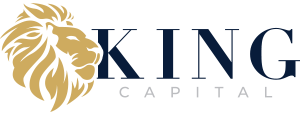- Call Us Now
- (888) 811-6101
- info@kingcapitalnyc.com
4 Essential Answers Required for a Business Loan Application

3 Types of Workplace Burnout
April 5, 2024
30 Ways to Enhance Your Online Visibility
June 5, 2024Business loans are specifically designed for commercial use, whether it’s to cover expenses or to fund new ventures. They provide companies and entrepreneurs with the necessary capital to support their business’s growth. The funds from a business loan can be used for expansion or to address various unforeseen expenses that occur during business operations.
When applying for a business loan, potential lenders could include banks, Small Business Administration agencies, or alternative financiers. Regardless of the chosen lender, business owners can expect to answer four critical questions during the application process.
How long has the applicant been in business?
This question is paramount for lenders when evaluating a business loan application. A longer business tenure is advantageous, indicating sustainability and a higher likelihood of repaying the loan. It also assures the lender of the business’s continued operation, minimizing their risk of financial loss.
In the United States, approximately 50% of small businesses shut down within their first five years. Surpassing this critical period significantly boosts lender confidence in the business’s longevity and its ability to fulfill loan obligations.
For businesses not yet past this milestone, exploring alternative financing options is advisable. Securing a loan based on personal credit might be a viable interim solution. Achieving a two-year operation mark improves the chances of obtaining a business loan. Meanwhile, maintaining robust business and personal credit scores is crucial, especially for those aiming to reach and exceed the five-year threshold.
How much revenue does the business generate, and what portion is retained by the applicant?
Lenders are keen to understand your business’s financial performance, specifically its revenue or sales and profitability. Gross revenue refers to the total amount collected from customers before deducting any expenses, such as equipment purchases, operational costs, and debt repayments. Profit, or net profit/net earnings/net income, represents the remaining funds after all these costs have been subtracted from the gross revenue.
The concept of profit or net profit is crucial for lenders as it illustrates the income that remains with the business owner. A business can experience high revenue levels yet struggle with profitability due to excessive expenses. This situation is not ideal for securing a loan, as it indicates financial instability.
How effectively does the business manage its cash?
Lenders scrutinize bank balances and financial statements to gauge your proficiency in managing cash flows. This evaluation differs from assessing profitability, as even profitable companies can struggle with cash flow issues. A cash flow statement reveals the available cash at any given moment.
For clarity, consider a business owner with an annual profit of $120,000. Suppose they secure a loan with a monthly repayment of $2,000. At first glance, repayment seems feasible. However, if the business’s profits are predominantly realized in the fourth quarter, the owner might face difficulties making repayments during the earlier months.
Cash flow and bank statements serve as crucial indicators for lenders to determine your capability for timely repayments.
What is the business / applicant debt repayment history?
When evaluating a business for financing, lenders scrutinize both business and personal credit scores. These scores serve as indicators of the business’s ability to manage the loan responsibly.
For businesses under five years, personal credit scores become crucial, as they represent the only financial history available for lenders to assess. Conversely, for those with a longer business tenure and solid business credit scores, personal credit becomes a testament to their overall reliability and trustworthiness.
A stellar credit score is around 780, indicating excellent creditworthiness. Scores from 661 to 780 are considered very good, while those between 601 and 660 fall into the fair category.
Achieving financing doesn’t necessitate a perfect score. Typically, a score in the range of 620-660 suffices. However, a higher score not only broadens loan options but also secures more favorable interest rates.
___
Business loans can breathe new life into your business, especially when you find yourself in a financial pinch. However, it’s crucial to be well-prepared and conduct thorough research before applying. Understanding the terms, interest rates, and repayment schedules is essential to ensure that the loan serves as a tool for growth rather than a financial burden.




